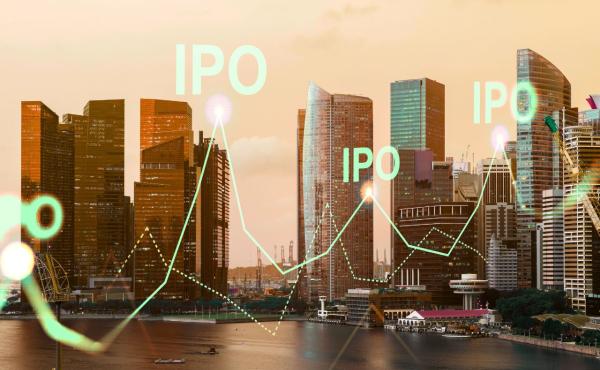
The ECGI blog is kindly supported by

All Shareholder Votes Are Not Created Equal: Why Some Investors’ Votes Matter More Than Others
The hallmark of democracy is that a poor man’s vote carries the same weight as a rich man’s vote. But when it comes to shareholder voting, the reality is more complex - and less democratic. Our new paper, "All Shareholder Votes Are Not Created Equal,” shows that votes by different shareholders have different levels of impact on corporate governance.
Why Do Some Shareholders Matter More?
In corporate elections, such as voting each year to confirm the board of directors, all votes count equally toward the final tally. Thus, it’s natural to think that each shareholder vote is equally impactful. Academic studies and real-world policy proposals often make this seemingly innocuous assumption. But it’s not true. Our paper documents that when a no-vote comes from an active mutual fund - a fund that actively picks stocks - the same director is more than twice as likely to exit the board, compared to a no-vote from a passive index fund.
Why does this difference exist? We find that the answer lies in the perceived threat posed by different types of investors. Active funds inherently have a stronger threat point - they can buy or sell stocks based on their evaluation of a company’s governance and performance. This discretion creates a disciplinary pressure: if a director is not performing, an active fund can divest, signaling to the market that the company’s governance is flawed; for example, market participants closely monitor the quarterly 13F filings of prominent stock pickers. These funds can also launch proxy battles to replace the board altogether. Passive funds, on the other hand, are locked into holding the stock as long as it remains part of their index. While passive funds can support a proxy battle, they do not start them. As a result, corporate boards listen more attentively to the votes of active investors.
The Myth of Passive Investor Power
The power of the “Big Three” passive asset managers - BlackRock, Vanguard, and State Street -has been hotly debated. These giants collectively own over 20% of the equity of most U.S. public firms. Many commentators and regulators, including eleven states, the Department of Justice, and the Federal Trade Commission, are concerned that the Big Three have outsized influence over corporate governance. However, our study shows that votes from the Big Three’s passive funds carry no more weight than votes from other active investors with smaller holdings. This finding suggests, surprisingly, that shareholder influence is less about sheer ownership but more about the shareholder’s identity.
Our analysis further shows that even within the Big Three, it’s only their active funds that sway board retention, not their passive ones. In short, the narrative that giant passive funds wield overwhelming influence is overstated.
Better Information or Stronger Threat?
One might think that active funds are more influential because they have better information about the firm’s performance or management quality. Yet, our study finds no evidence supporting this explanation. Even when passive funds do more research, like viewing the firm’s proxy statements, their votes still count for less. The same is true in situations when firm-specific information gathering should matter more: the gap in shareholder influence remains about the same in size.
By contrast, the difference between passive and active funds shrinks when the board is more entrenched and has less to fear from future shareholder actions. This finding suggests that the threat of future divestment or hostility is more important than the quality of information when it comes to director retention. They also underline a broader point about shareholder democracy: votes are not just about tallying opinions. They also serve as signals of potential future actions.
Rethinking Shareholder Democracy
Regulators have debated whether passive funds should be allowed to vote at all, given their perceived lack of monitoring. Yet, our study shows that even when they do vote, their influence is limited. The more pertinent question is whether it is fair for votes to be weighted differently depending on the shareholder’s ability to divest.
There are also implications for pass-through voting, where individual investors in passive funds are given a direct say. If the fundamental problem lies in the lack of perceived threat from passive shareholders, then merely increasing their ability to vote doesn’t change much. Instead, the structure of the investment itself determines the weight of the vote.
A New Paradigm for Shareholder Voting
The key takeaway from our study is that shareholder voting power is not just about ownership. Active funds hold more sway, despite their smaller levels of share ownership, because their votes imply a willingness to back up their dissent with real action.
This reality challenges the ideal of equal voting power in shareholder democracy. Perhaps it’s time to rethink how we understand corporate governance and the influence of investors. If it is the ability to make credible threats - and not information - that truly matters for governance, should regulators look to level the playing field, or accept this disparity as a natural consequence of how corporate governance is run?
In either case, simply having a vote - advisory in most cases anyway - is not enough. It is the shareholder standing behind the vote that truly counts.
_______________
Davidson Heath is Associate Professor of Finance at the University of Utah.
Da Huang is an Assistant Professor of Finance at Northeastern University.
Chong Shu is an Assistant Professor of Finance at the University of Utah.
The ECGI does not, consistent with its constitutional purpose, have a view or opinion. If you wish to respond to this article, you can submit a blog article or 'letter to the editor' by clicking here.


